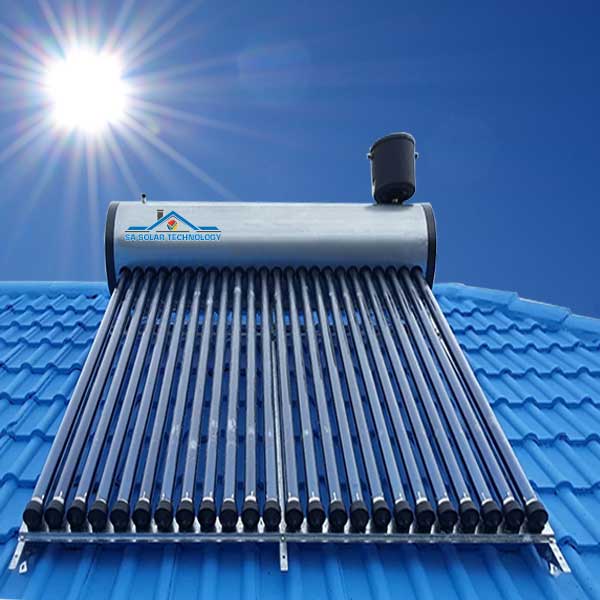Finding the best way to heat your water for your home is crucial for cutting down on electricity bills and overall comfort. Heat pumps and solar geysers have proven to be highly efficient options for energy-efficient water heating. In this article, we will explore how to choose heat pumps and solar geysers for your home.

Understanding Solar Geysers
Solar water heating systems use the power of the sun to ensure hot water supply. Solar water heaters use panels, pipes, and storage tanks. The collectors absorb solar energy, which is then converted into thermal energy. Solar geysers are a sustainable electricity-based systems.
How Solar Geysers Save Energy
The primary advantage of solar geysers is their ability to save energy. Because they use solar energy, they drastically reduce your overall heating expenses. Not only do they help save money, solar geysers also help reduce your carbon footprint.
These systems work best in areas with plenty of sunshine. Even on cloudy days, many systems have electrical backup systems to keep your water heated.
When to Choose a Solar Geyser
Solar geysers works well for people seeking an eco-friendly solution. If your home receives a lot of sunlight can take full advantage of solar energy from this system.
However, it’s important to consider the initial cost of a solar geyser system. Although solar geysers save money over time, the installation and equipment can be more expensive than traditional systems. Many regions provide tax breaks to help reduce the cost.
Understanding Heat Pumps
Heat pump systems work by transferring heat from the surrounding air to warm your water. Instead of producing heat through combustion or resistance heat pump installer, heat pumps move thermal energy. This makes them a cost-effective solution, because they consume significantly less energy compared to electric geysers.
Why Choose a Heat Pump?
A key benefit to choose a heat pump system is its ability to save energy. Heat pumps typically consume much less electricity by over 50% compared to electric geysers. This translates to major cost savings on utility costs.
Along with lowering energy costs, they reduce greenhouse gas emissions. Since they harness heat from the environment, they are a greener option compared to traditional heating methods.
Who Should Consider a Heat Pump?
Heat pumps is a great choice who live in moderate climates. Heat pumps are highly efficient in mild climates, as extremely cold weather can impact their efficiency.
Like solar geysers, heat pumps come with a higher upfront cost. However, the long-term energy savings make them a smart investment.
Comparing Solar Geysers and Heat Pumps
Whether you choose a solar geyser or a heat pump are energy-efficient solutions for eco-friendly water heating. Each one comes with its own advantages and considerations. Let’s look at the key differences:
Power Consumption: Solar geysers offer free heating when the sun is shining, while heat pumps use electricity but are still much more efficient than traditional heaters.
Cost: Solar geysers may be more expensive to install, but they pay for themselves through energy savings over time. Heat pumps have a moderate upfront cost.
Climate Suitability: Solar geysers work best in sunny areas, while heat pumps are ideal for areas with mild temperatures.
Final Thoughts
Choosing between solar geysers and heat pumps offer great benefits for those seeking sustainable energy solutions. If you live in a sunny area and want to maximize eco-friendliness. However, if you live in a moderate climate and are looking for energy savings.
Whether you opt for a solar geyser or a heat pump, you’ll enjoy long-term savings and lower your environmental impact.